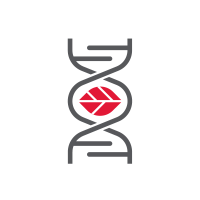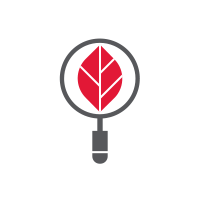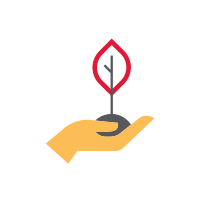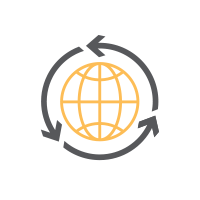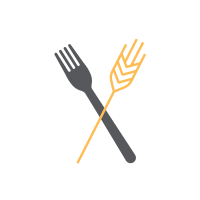What is Agronomy Technically speaking, agronomy is the study of soil management and crop production. But on a deeper level, it’s so much more. When you study agronomy at Iowa State, you’ll learn about matters increasingly vital to our ever-changing world. Like protecting our environment. Optimizing food production. Improving water, soil and air quality. And that’s just the beginning.
Why Iowa State? With unique hands-on learning opportunities in the field, 135 groundbreaking research labs, and professors who write textbooks on the subject, an agronomy degree from Iowa State is more than just a certificate. It’s how you will impact future generations.
Areas of Interest
An Iowa State Agronomy degree is customizable to your specific interests, but here are a few of our most popular options.
AGRONOMY MAJOR
4-year Plan Example
Get started in college life and agronomy. Intro courses will give you an over view of climate, soils, agricultural production and how it all works together.
Fall
AGRON 1100
Orientation to college life, the profession of agronomy and the agronomy curriculum.
AGRON 1800
Discussing the global distribution of climate, soils and agricultural production and consumption. Physical processes that connect natural resources to agriculture and the environment.
AGRON 1830
Developing skills agronomists will employ in their work with crops, soil and the environment.
CHEM 1630 or 1770
CHEM 1630L or 1770L
ENGL 1500
LIB 1600
MATH OR SOCIAL SCIENCES
Spring
AGRON 1810
Basic structure and function of plants, origin and classification, growth and development.
AGRON 1820
Introduction to physical, chemical and biological properties of soil; soil formation, classification and global distribution; soil health, soils and humanity and sustainable land management.
BIOL 2120
BIOL 2120L
ENGL 2500
MATH OR SOCIAL SCIENCES
Start digging into the details of agronomy and your career. Get out in the field before classes start as part of AGRON 2790. Learn about weather and climate, plant growth, genetics and soil maps and databases.
Fall
AGRON 2060
Basic concepts in weather and climate, including atmospheric measurements, radiation, stability, precipitation, winds, fronts, forecasting, and severe weather. Applied topics include global warming, ozone depletion, world climates and weather safety.
AGRON 2100
Career planning, résumé and cover letter preparation. See advisor for departmental requirements.
AGRON 2790
Field-based investigation of Iowa’s agronomic systems. Application of principles learned in introductory soils, crops and agronomy courses. For students majoring in agronomy.
STAT 1040
HUMANITIES
Spring
AGRON 2810
Science governing plant growth and development in the context of cropping and genetic improvements.
AGRON 2820
Principles of soil conservation and land use with emphasis on best management practices and use of soil maps and databases such as Web Soil Survey.
AGEDS 3110 or SP CM 2120
ORGANIC CHEMISTRY: AGRON 2590, BBMB 2210, OR CHEM 2310 & L
ELECTIVE
Learn about crop communities, genetics and global agriculture systems. Take a deep look at soil properties and their affect on plants in the lab. Round out the year with an English classes and additional sciences.
Fall
AGRON 3160
Basic principles concerning the growth, development, and production of crop communities in relation to their environment.
AGRON 3540
Effects of chemical, physical, and biological properties of soils on plant growth, with emphasis on nutritive elements, pH, organic matter maintenance, and rooting development.
AGRON 3540L
Laboratory exercises in soil testing that assess a soil’s ability to support nutritive requirements for plant growth.
ELECTIVE
SUPPORTING SCIENCES
Spring
AGRON 3200 OR BIOL 3130
Transmission and molecular genetics with an emphasis on applications in agriculture, the structure and expression of the gene, how genes behave in populations and how recombinant DNA technology can be used to improve agriculture. Credit for graduation will not be allowed for more than one of the following: Gen 2600, 3130, 3200 and Biol 3130 and 3130L.
BIOL 3130:
Introduction to the principles of transmission and molecular genetics of plants, animals, and bacteria. Recombination, structure and replication of DNA, gene expression, cloning, quantitative genetics, and population genetics. Students may receive graduation credit for no more than one of the following: Gen 2600, Gen 3130 and 3130L, Gen 3200, Biol 3130 and 3130L, and Agron 3200.
AGRON 3420 OR AGRON 4500
Issues associated with global agricultural and food systems including ethical, social, economic, environmental, and policy contexts. Investigation of various causes and consequences of overnutrition/ undernutrition, global health, poverty, hunger, access, and distribution. Meets International Perspectives Requirement.
AGRON 4500:
Agricultural science as a human activity; contemporary agricultural issues from agroecological perspective. Comparative analysis of intended and actual consequences of development of industrial agricultural practices.
ENGL 3020, 3090, OR 3140
INTERNATIONAL PERSPECTIVES
SUPPORTING SCIENCES
Spread your roots! Take agronomy electives that really pinpoint your interests in agriculture. Choose between applying soil science to applying contemporary environmental problems or on-farm management strategies.
Fall
AGRON ELECTIVES
ELECTIVE
ETHICS
U.S. CULTURES AND COMMUNITIES
Spring
AGRON 3600 OR AGRON 3920
AGRON 3600:
Application of soil science to contemporary environmental problems; comparison of the impacts that different management strategies have on short- and long-term environmental quality and land development. Emphasis on participatory learning activities.
AGRON 3920:
Management strategies at the level of the farm field. Emphasis will be on participatory learning activities.
AGRON 4100
Development of an appropriate content for professionalism. Topics include professional certification, ethics, and maintaining an active network of information sources and professional contacts in support of lifelong learning. Student interpretation, writings, presentations, and discussions.
ELECTIVE
SUPPORTING SCIENCES
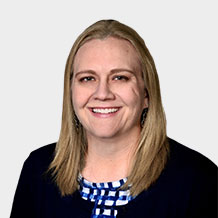
If you’re ready to change the world, contact:
Stephanie Zumbach
Student Services Specialist
Office:
1126F Agronomy
Phone:
515-294-5179
Email:
szumbach@iastate.edu

